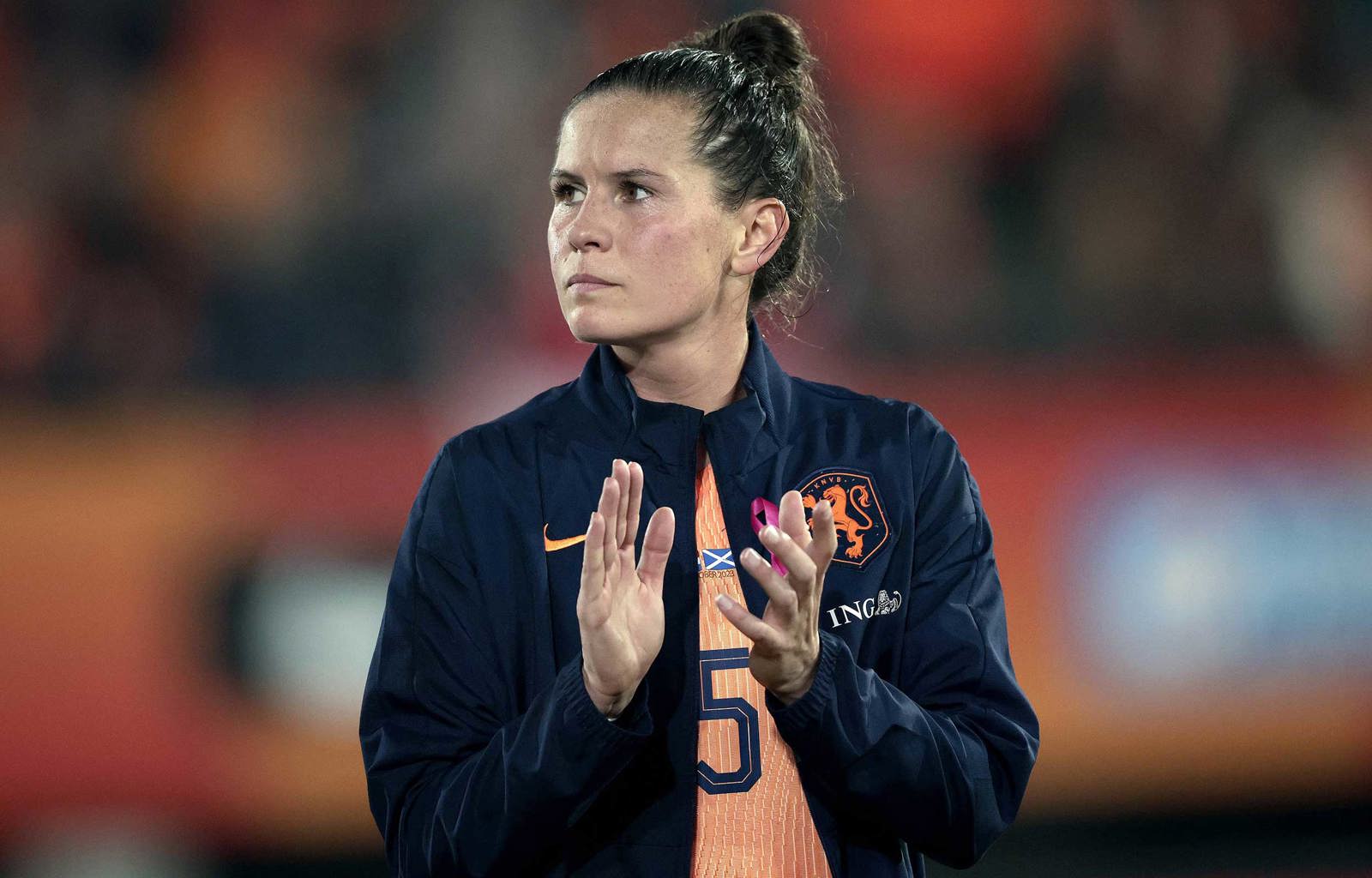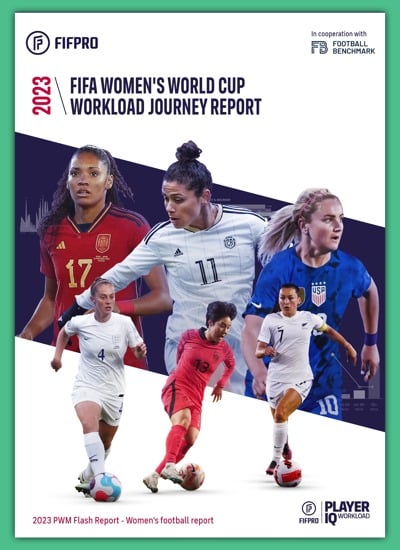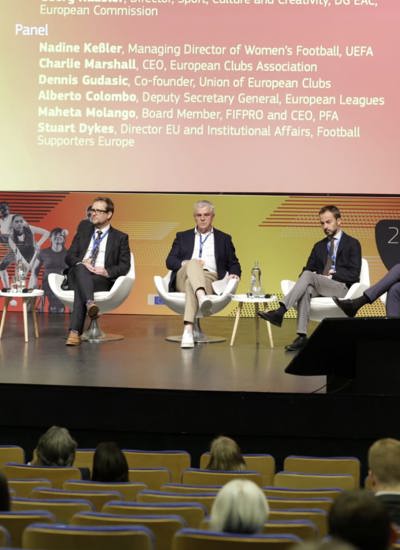
- Netherlands defender Merel van Dongen was speaking on The Guardian’s Women’s Football Weekly podcast
- Van Dongen, a member of FIFPRO’s Global Player Council, was also joined by Sarah Gregorius and Dr Alex Culvin
- The issues of overload and underload affecting women’s players were put under the microscope
Netherlands women national team players are "all the time" raising the issue of increased workload demands and burnout amongst each other, according to Merel van Dongen.
The Dutch defender, who is currently on loan at Mexican club Monterrey from Liga F side Atletico Madrid, was speaking on The Guardian’s Women’s Football Weekly podcast.
Van Dongen, who is a member of FIFPRO’s Global Player Council, said: "Talking in our national team, the Netherlands, it's a very big subject – we're on the phone with each other about it all the time.
She continued: "Above all it's the lack of mental rest, I would say, more than anything. You have to imagine, especially at the elite level when you play in all competitions, you can easily get up to more than 60 games a year. With the calendar only growing, to have a 15-year career as a women's football player, it is too much."
Van Dongen added: “I truly believe in a solution like fixed rest – and that should be the responsibility of the club, because in the end, the club has so many games."

Overload and underload affecting women’s game
While an overloaded match calendar can have a damaging impact on players’ physical and mental wellbeing, so too can an underloaded one – an issue very much affecting women’s football.
While international players at the upper echelons of the women’s game are subject to a cannibalised calendar that shows little regard for their overall wellbeing, there are players competing at a domestic level who are afforded a relatively low number of appearances each season due to the fragmented spread of games.
2023 FIFA Women’s World Cup Workload Journey Report
The report underlines how the domestic and international calendars in the women’s game remain uneven and fragmented, leaving many players in the countries where football is less developed forced to move abroad to improve, or face the prospect of not having enough matches to reach their potential.

Also speaking on Women’s Football Weekly, Sarah Gregorius – FIFPRO's Director Global Policy & Strategic Relations for Women's Football – explained: “On the one hand, the physical and mental demands on athletes playing at a high level domestically and internationally are reaching breaking point with very little time for rest between games.
"Then in stark contrast to that, the majority of players globally are actually playing too little football with stop-start schedules that have to fit in with the international calendar rather than suiting their domestic game."
Some players last year in the Women’s Super League, for instance, had four months without any competitive football, partly the result of England’s top-flight only having 12 teams.
"If you compare the men's Premier League which has 20 teams and then the FAWSL that only has 12, underload won't be an issue for non-international footballers in men's football – it's a problem specific to women’s football," said Dr Alex Culvin, FIFPRO’s Head of Strategy and Research for Women’s Football.
"The innovation needs to think about competition expansion in terms of league size, number of quality teams, relegation, promotion, closed leagues, all of these different components to think about underload. It's a problem that affects a large proportion of players and I don't think it's considered enough from competition organisers perspective."
More consideration is needed from competition organisers when shaping the International Match Calendar, especially when it comes to the overall scheduling of games.
"When talking about overload and underload, sometimes it's not just about the number of games – it's about when those games are scheduled," said Gregorius. "It's about where we place the different competitions because if we just look at the International Match Calendar, domestic league competitions and the Champions League on its own, it looks fine.
"It's when we put them all together that it becomes an issue. Before the calendar starts to be chipped away at, we need to lock in the rest for leagues that run over a traditional European winter and lock them in for leagues that run on the opposite calendar of around March to November, and then place the competitions around that."


